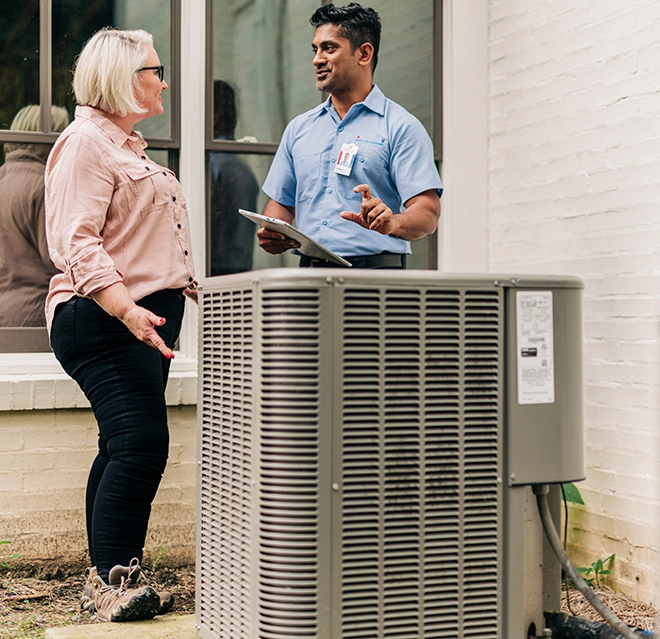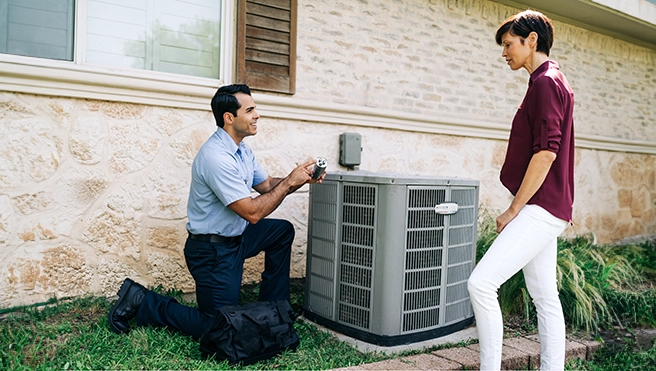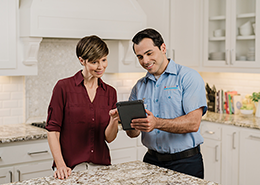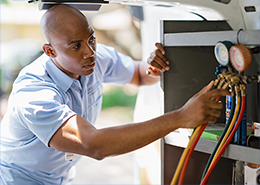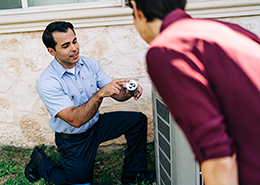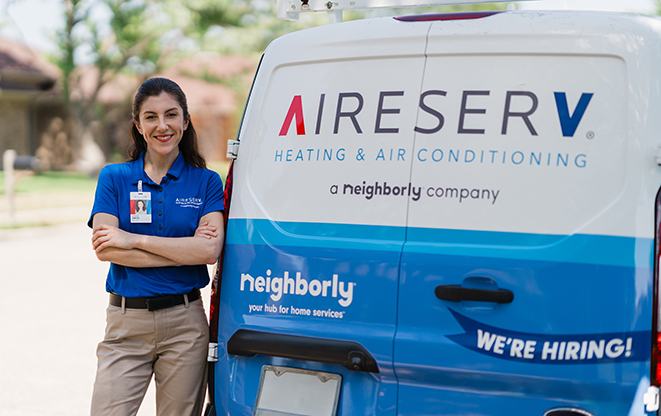When it's time for emergency service, sometimes McKinney homeowners are reluctant to call because they're not sure if what they are experiencing qualifies as an HVAC emergency. Or, the problem starts small and gets progressively worse over time so homeowners don't realize how bad it truly is until there's a catastrophic problem that they can't help but notice.
If you're aware of some of the potential signs that your home is in desperate need of McKinney emergency HVAC service, you can call to get it fixed right away—even in the middle of the night or during a holiday weekend—so you don't have to keep shivering or sweltering. Here are a few red flags that indicate you should call Aire Serv for professional service:
HVAC Won't Turn On—Or Won't Turn Off
If your HVAC system won't turn on at all, that's clearly a major issue. While there may be some places in the world where air conditioning is an afterthought that isn't all that important, Texas is not one of those places. Having access to adequate temperature control, whether it's summer or winter, is critical for not only comfort, but survival.
In the same sense, if your HVAC doesn't turn off that can be just as bad. The system is supposed to turn on when needed and turn off when the temperature in your home reaches the desired level, so if it never turns off, your house will be freezing cold or boiling hot—and you'll be racking up excessively high charges on your monthly energy bills. Learn more about HVAC energy usage with our tips to avoid costly heating and cooling in McKinney, TX.
These issues can be related to extremely dirty air ducts or a serious malfunction in the system, but more often than not the culprit is actually a faulty thermostat. Your thermostat sends signals to the system, telling it when to turn on or off. If the thermostat isn't working properly, the system won't “know” what to do. As annoying as this is, it's actually good news—your emergency HVAC professional can simply replace the thermostat, which is an inexpensive part, and everything should quickly get back to normal.
System is Rapid Cycling
We mentioned above that your HVAC system should turn on when it's needed to raise or lower the temperature in your house, and turn off once it achieves the temperature you have set on your thermostat. That's the most energy efficient way for it to operate because it can get a break and stop using fuel while the house is at the right indoor comfort level. If you've noticed that it seems to be constantly turning on, operating for a short burst, then turning off—only to turn back on again shortly after, that's a problem.
It's called short or rapid cycling, and while it may not be affecting the livability of your home, it is increasing your energy costs and causing unnecessary wear and tear to your system. This may not seem like the most serious McKinney emergency HVAC situation, but it is something that needs to be taken care of right away before it causes more severe damage to your system.
Strange Noises
Are you hearing odd noises coming from your ducts or HVAC units themselves, such as loud banging, hissing, clanking, grinding, gurgling, squealing or screeching? Or, unusually loud buzzing or humming noises? A forced-air system like a central HVAC set-up isn't going to be 100% silent because you'll hear the sound of moving air, but it shouldn't be making noticeably loud or strange sounds. There's a large number of reasons why this could be happening, depending on the sound and where exactly it is coming from, but you should get it checked out right away because it could be a sign of a serious impending failure or breakdown.
Unpleasant Smells From Air Ducts
What's that gross smell? If you notice a musty odor coming from your vents, it could be related to mold or mildew growth inside the ductwork, or an excessive build-up of dust and debris. Needless to say, that severely lowers the indoor air quality in your McKinney home and can pose a threat to the health of your family. If the smell is more like a decaying, rotting odor, the problem is likely being caused by a pest such as a rat or mouse that crawled into the duct and died. Either way, it needs to be taken care of immediately with McKinney emergency HVAC service.
AC Unit Is Leaking Fluid or Iced Over
It's important to regularly check your compressor, which is the outdoor unit for your air conditioner and heat pump. If you notice ice forming on the outside of the unit, that's not good—it should be providing cool air to your house, not encasing itself in a block of ice. Or, you may notice fluid leaking from either the compressor unit or the indoor evaporator unit. While it's likely water, you can't ignore the possibility that it's leaking refrigerant. It's dangerous and very toxic to touch or inhale refrigerant, so if you do suspect a refrigerant leak, don't go near it. Instead, call your local McKinney emergency HVAC service professional to take care of it safely and efficiently.
HVAC Is Tripping Circuit Breakers
If your circuit breaker frequently trips when your furnace or air conditioner turns on, something's not right. It's likely an electrical malfunction with your system, though it's possible it's related to the electrical panel itself. Regardless, it needs professional attention right away. A neglected electrical problem can create a major fire hazard that threatens both your home and the members of your household.
Carbon Monoxide Alarm Was Triggered
If you have a furnace that is powered by natural gas, it is critically important that you have carbon monoxide detectors on every level of your home, especially near sleeping areas. Carbon monoxide is a colorless, tasteless gas produced by the combustion process that occurs when heaters use natural gas as fuel. It is extremely harmful and even fatal when it's inhaled in large quantities, and it can leak from exhaust lines or connections that have deteriorated or been damaged. It’s also possible for natural gas itself to leak from damaged supply lines.
Both carbon monoxide and natural gas are naturally odorless. Natural gas commonly has a sulfur-like smell added to it so it's easier to detect if there's a leak, but carbon monoxide does not, which is why it’s important to have a carbon monoxide detector.
If your carbon monoxide alarms are triggered or you smell a rotten egg sulfur odor and suspect a leak, you need to open the windows in your house and immediately remove all people and pets from the building until your system can be thoroughly checked out by an HVAC emergency service professional.

